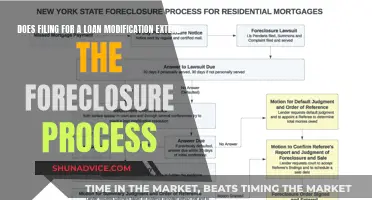
The Federal Housing Finance Agency (FHFA) has stated that it will not allow Fannie Mae or Freddie Mac to purchase single-family home loans that are subject to a primary lien assessed through a Property Assessed Clean Energy (PACE) lending program. This is because PACE loans are not recorded in land records but in tax rolls, making them difficult to identify in title searches. PACE programs also lack uniformity, differing in every community within a state. This makes it challenging for lenders to evaluate the implications for individual homeowners or home purchasers. As a result, borrowers with a first-lien PACE loan are unable to refinance into a mortgage guaranteed by Fannie Mae or Freddie Mac. However, for PACE loans originated prior to July 6, 2010, Fannie Mae waives the uniform security instrument prohibition against a PACE loan with lien priority if the corresponding mortgage loan was purchased before the same date.
| Characteristics | Values |
|---|---|
| Fannie Mae's stance on PACE loans | Fannie Mae does not allow PACE loans that have priority lien status over existing mortgages. |
| PACE loan characteristics | PACE loans are an alternative to traditional credit for homeowners to finance energy-efficient projects such as solar panels, insulation and window upgrades. |
| PACE loan repayment | Homeowners pay for the improvements through special property tax assessments. |
| PACE loan priority | In many jurisdictions, the PACE loan has priority over existing and future liens on the property, including a lender's mortgage lien. |
| PACE loan risks | PACE loans may erode the value of a lender's or investor's security interest if the borrower defaults. |
| PACE loan consumer protection concerns | There have been reports of aggressive contractors, deceptive loan practices and a lack of consumer protections. |
| PACE loan transparency | PACE loans are not recorded in local land records, making it challenging for lenders to identify during title searches. |
| PACE loan interest rates | Interest rates for PACE loans are typically higher than for first-lien mortgage loans. |
| PACE loan repayment terms | PACE loans may have repayment terms of up to 20 years. |
| PACE loan program support | Congress, the California attorney general, and sustainability advocacy groups have urged support for the PACE program as a way to reduce energy consumption and create jobs. |
What You'll Learn

Fannie Mae and Freddie Mac blacklist PACE program
The Federal Housing Finance Agency (FHFA) has determined that certain energy retrofit loan programs, including Property Assessed Clean Energy (PACE), present significant safety and soundness concerns. As a result, Fannie Mae and Freddie Mac, which are government-sponsored entities regulated by FHFA, do not support the PACE program.
PACE is a financing mechanism for residential energy-efficient improvements. It originated in California in 2008 and quickly gained popularity, with a legislative basis in 37 states and active programs in 26 states. The program allows property owners to finance the upfront cost of energy and other eligible efficiency-related improvements through a fixed-interest rate lien paid off over time as an added tax assessment. These assessments, or loan payments, are attached to the property, meaning that if a property is sold, the new owner becomes responsible for the payments.
However, FHFA has identified several issues with the PACE program. Firstly, PACE loans acquire a priority lien over existing mortgages, which poses unusual and challenging risk management issues for lenders, servicers, and mortgage securities investors. This practice of "lien-priming" increases the risk of losses to taxpayers and is contrary to the bedrock principle that mortgages supported by Fannie Mae and Freddie Mac must remain in the first-lien position. Secondly, PACE loans are difficult to identify in title searches as they are recorded in tax rolls rather than land records and often have varying names or descriptions. Additionally, PACE programs lack uniformity across communities, making it challenging for lenders to evaluate the implications for individual homeowners or purchasers.
In 2010, FHFA directed Fannie Mae and Freddie Mac not to purchase or refinance mortgages with PACE liens. This decision has faced criticism from members of Congress, government associations, and sustainability advocacy groups, who argue that FHFA is wrong to treat property assessments as loans and that the PACE program is essential for reducing energy consumption and creating jobs. Despite these objections, FHFA's stance on the PACE program remains unchanged.
FAFSA Summer Loans: What You Need to Know
You may want to see also

PACE loans are not recorded in land records
The Federal Housing Finance Agency (FHFA) has expressed concerns about the Property Assessed Clean Energy (PACE) program, a popular financing mechanism for residential energy-efficient improvements. FHFA's regulated entities, including Fannie Mae, are directed to address the safety and soundness concerns posed by PACE loans.
PACE loans are unique in that they are attached to the property and are not recorded in land records but in tax rolls, often with varying names or descriptions. This makes them difficult to identify in title searches. The lack of uniformity across communities and states further adds to the challenge of evaluating the implications for individual homeowners or purchasers.
The primary concern with PACE loans is their super-priority lien status, which means they take precedence over existing mortgages in the event of foreclosure. This alteration of traditional mortgage lending practices increases the risk of losses to taxpayers and investors. As a result, Fannie Mae has been directed by FHFA not to purchase or refinance mortgages with PACE liens.
The treatment of PACE loans as property assessments rather than loans by FHFA has sparked criticism from various quarters, including members of Congress, government associations, and sustainability advocacy groups. They argue that PACE is an essential tool for reducing energy consumption and creating jobs. Despite these objections, Fannie Mae's advisory continues to exclude PACE loans, impacting the ability of property owners with PACE liens to sell their properties.
Fannie Mae: Government Loan Modification Options Explained
You may want to see also

PACE programs lack uniformity
The Federal Housing Finance Agency (FHFA), which regulates Fannie Mae and Freddie Mac, has expressed concerns about the Property Assessed Clean Energy (PACE) program. PACE programs allow property owners to finance the upfront cost of energy and efficiency improvements through a fixed-rate loan that is repaid over time as an additional tax assessment. While PACE has gained support as a powerful financing mechanism for residential energy-efficient improvements, FHHA has flagged safety and soundness concerns, particularly regarding the priority of PACE liens over existing mortgages.
One of the concerns about the PACE program is the lack of uniformity across different communities and states. PACE programs may differ in every community within a state, making it challenging for lenders to evaluate the implications for individual homeowners or purchasers. This lack of uniformity, combined with the fact that PACE loans are recorded in tax rolls rather than land records, can make it difficult to identify these loans in title searches.
The FHFA has directed Fannie Mae and Freddie Mac to avoid purchasing or refinancing mortgages with PACE liens due to the risk of these liens taking priority over existing mortgages. This stance has been upheld by three Circuit Court decisions. However, Congress, government associations, and sustainability advocacy groups have urged the FHFA to restore the PACE program, arguing that it is essential for reducing energy consumption and creating jobs.
In 2020, the FHFA sought public input on potential changes to its policies regarding residential energy retrofitting programs, including PACE. The FHFA's primary focus was on addressing safety and soundness concerns while considering the impact on taxpayers and the housing finance market. As of 2021, PACE has a legislative basis in 37 states, with 26 states having active programs. However, the program has faced public criticism, a decline in participation, and even termination in some municipalities due to issues such as aggressive contractors and deceptive loan practices.
Failing a Semester: Can You Still Get Loans?
You may want to see also

PACE programs threaten the quality and stability of large amounts of Enterprise loans
The Federal Housing Finance Agency (FHFA) has raised concerns about the risks posed by Property Assessed Clean Energy (PACE) programs to the quality and stability of large amounts of Enterprise loans. PACE programs are designed to promote lending for retrofits of residential or commercial properties through a city or county's tax assessment regime.
One of the main concerns is that PACE loans acquire a "super-priority lien" status, which means they take precedence over existing mortgages in the event of foreclosure. This goes against the standard practice in mortgage lending, where the first-lien position is typically held by the original mortgage lender. As a result, PACE loans increase the risk of losses for taxpayers and lenders, as they may not be able to recoup their investments in the event of a default.
In addition, PACE programs lack uniformity across communities and states, making it challenging for lenders to evaluate the implications for individual homeowners or purchasers. This lack of standardization also makes it difficult to identify PACE loans in title searches, as they are recorded in tax rolls rather than land records and often have varying names or descriptions.
The FHFA has directed Fannie Mae and Freddie Mac to avoid purchasing or refinancing mortgages with PACE liens due to these concerns. As of 2020, the FHFA was seeking input on potential policy changes to address the risks posed by PACE programs, including the possibility of directing the GSEs to decrease loan-to-value ratios in communities or states where PACE loans are available.
The PACE program has faced criticism from various stakeholders, including consumer groups who have reported issues with aggressive contractors, deceptive loan practices, and a lack of consumer protections. Some homeowners have also struggled to sell their properties due to the difficulty of identifying and clearing PACE liens. While PACE programs were intended to promote energy-efficient improvements, the lack of standardized consumer protections and the potential risks to lenders and taxpayers have raised significant concerns about their implementation.
FAFSA and Loans: What You Need to Know
You may want to see also

PACE financing and consumer protection concerns
The Property Assessed Clean Energy (PACE) program is a powerful financing mechanism for residential energy-efficient improvements. PACE programs allow property owners to finance the upfront cost of energy and other eligible efficiency-related improvements through a fixed-rate interest lien paid off over time as an additional tax assessment.
PACE financing has been criticised for its questionable lending practices and lack of consumer protections. In 2017, the Consumer Financial Protection Bureau (CFPB) proposed new consumer protections for homeowners seeking clean energy financing. The CFPB's proposed rule would require PACE creditors to consider a consumer's ability to repay when issuing a new PACE loan and adjust disclosure requirements to help consumers understand the impact on their property tax payments.
In 2018, Congress enacted amendments to the Truth in Lending Act (TILA), applying federal loan regulation standards to PACE. The CFPB was tasked with implementing this law and published an Advanced Notice of Proposed Rulemaking on R-PACE, specifying that loan providers must ensure TILA's ability-to-repay requirements applied to R-PACE.
PACE programs have also faced criticism for their lack of uniformity, making it challenging for lenders to evaluate the implications for individual homeowners or purchasers. In 2010, the Federal Housing Finance Agency (FHFA) directed Fannie Mae and Freddie Mac not to purchase or refinance mortgages with PACE liens due to safety and soundness concerns. FHFA has stated that the existence of super-priority liens increases the risk of losses to taxpayers and poses unusual risk management challenges for lenders and investors.
In response, members of Congress, government associations, and sustainability advocacy groups urged FHFA to restore the PACE program, arguing that FHFA's concerns were ill-founded and that PACE is an essential vehicle for reducing energy consumption and creating jobs. Despite this, Fannie Mae and Freddie Mac continue to blacklist the PACE program, citing concerns about the quality and stability of their loans.
Extended Warranty Coverage: Loaner Vehicles Included?
You may want to see also
Frequently asked questions
No, Fannie Mae does not allow PACE loans. In 2010, the Federal Housing Finance Agency (FHFA) directed Fannie Mae and Freddie Mac not to purchase or refinance mortgages with PACE liens.
Fannie Mae does not allow PACE loans because they are not recorded in land records but in tax rolls, making them difficult to identify in title searches. PACE programs also lack uniformity and may differ in every community within a state. This makes it challenging for lenders to evaluate the implications for individual homeowners or home purchasers.
PACE loans, or Property Assessed Clean Energy loans, are a model for property retrofitting loans. They allow property owners to finance the upfront cost of energy and other eligible efficiency-related improvements through a fixed-rate lien.







